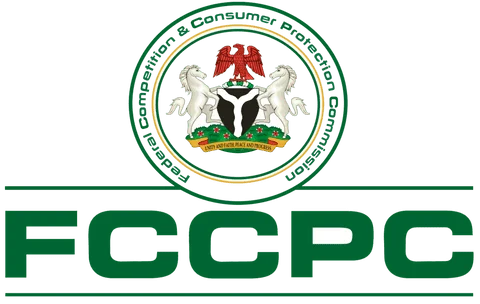The Coalition for Economic Fairness (CEF), a network of civil society organisations, has called on telecommunications companies and their foreign partners to fully comply with the Federal Competition and Consumer Protection Commission’s (FCCPC) Digital Lending Regulations 2025 to safeguard Nigerian consumers and promote fair competition in the financial technology space.
The coalition made the call at a press briefing held in Abuja on Tuesday, where its spokesperson, Nkechi Eze, described the FCCPC’s regulatory framework as “a bold and necessary move to protect Nigerian consumers and entrepreneurs from exploitative digital lending practices.”
Eze said the commission’s latest policy intervention represents a major step toward establishing accountability, transparency, and consumer protection in Nigeria’s rapidly growing digital finance industry.
“For years, Nigerian consumers have been exploited through opaque lending systems that operate without oversight,” she said. “The FCCPC is not stifling innovation; it is creating an environment where innovation thrives safely and fairly.”
Eze commended the commission for prioritising consumer welfare, data privacy, and equitable access to the digital economy, noting that the framework ensures that the wealth generated from Nigeria’s digital space benefits Nigerians.
She added, “This regulation is about fairness, safety, and inclusion. It guarantees that wealth created in Nigeria benefits Nigerians.”
The coalition urged telecom operators and foreign digital lenders to comply fully with the law and collaborate with Nigerian fintech firms to create a more inclusive and sustainable financial ecosystem.
Eze said the new digital lending rules will help dismantle monopolistic practices that have long affected Nigeria’s financial sector, giving room for indigenous fintech players to thrive.
“By enforcing transparency and accountability, the FCCPC is ensuring that lending practices not only protect consumers but also empower local businesses,” she added.
According to the CEF, compliance with the FCCPC’s Digital Lending Regulations will also enhance investor confidence, support responsible innovation, and reduce consumer exploitation that has plagued the industry in recent years.
The group further urged telecommunications companies to align their operations with the new regulatory guidelines, particularly in areas involving partnerships with foreign lenders and app-based loan providers.
“The inclusion of Nigerian-owned intermediaries in lending partnerships will ensure that value remains within the country,” Eze said. “Stakeholders must collaborate in building a fair financial system that meets the needs of all Nigerians.”
The coalition explained that the FCCPC’s regulatory framework provides an opportunity for all players in the digital lending ecosystem — including telecom firms, fintech companies, and data service providers — to operate on equal and transparent terms.
Eze noted that the coalition supports the commission’s move to enhance oversight, improve compliance monitoring, and ensure that all digital lenders are registered, licensed, and accountable for their activities.
She said, “We cannot allow a situation where Nigerians lose their privacy and security in the name of easy access to loans. Innovation in the financial sector should not come at the expense of the rights and protections of consumers.”
The CEF reaffirmed its commitment to supporting the implementation of the FCCPC’s framework, noting that it will continue to advocate for policies that promote fairness, competition, and sustainable digital growth.
“As the digital lending market expands rapidly, compliance with the FCCPC’s regulations is vital to safeguard consumer rights and promote sustainable economic growth,” the coalition said in its closing statement.
The group also called on the National Assembly and other regulatory agencies to support the commission through stronger enforcement mechanisms and better inter-agency collaboration to ensure that violators are held accountable.
The FCCPC’s Digital Lending Regulations 2025 form part of Nigeria’s broader effort to sanitise the digital finance sector, following reports of consumer data abuse, harassment by unlicensed lenders, and unfair loan recovery practices.
The new framework introduces licensing requirements, data-sharing standards, ethical loan recovery rules, and a national registry for all licensed digital lenders, aimed at building a fair, transparent, and inclusive financial system.
